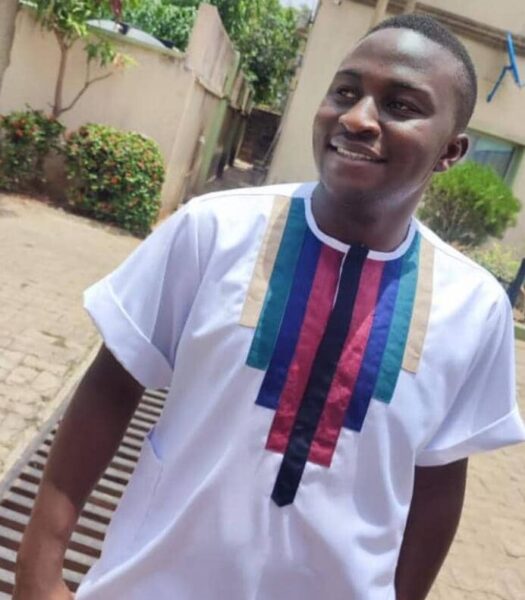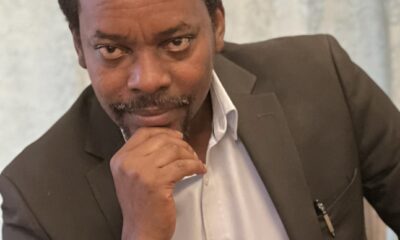National Issues
Did You Say Nigerians Are Not United? -By Nkom Blessed Chat
Individual differences give room for ideological differences. The Hausa man thinks Politics is his birthright, the Igbo man considers business to be his occupation, and the Yoruba man sees education as his business as a sustainable element of life. We are in a society where individuals and ethnic groups vary in thoughts, ideologies, and world views.

Present on the sand of time in Nigeria is the footprint of hatred, in our minds are the imprints of division, and written on our faces are the blueprints of pseudo-unity. These realities place the concerned citizen in a state of mystification, so much so that he/she is confused about whether to express his bitterness about the so-called hope of Blacks or to celebrate her inability to record a reasonable achievement. No doubt, Nigeria is a multicultural Nation with many ethnic, cultural, and ideological diversities. A country with so many religious pundits, yet spirituality has been sacrificed on the altar of religiosity. Here we are in a country where our diversities seem to be the bane of our misfortune, and where our differences are creating fragmentations and sectarian conflicts, which makes peaceful co-existence increasingly difficult.
In trying to proffer solutions to our maladies, I got trapped in a logical spat with a senior advocate of our Nation, who in his opinion made a harmless statement about Nigeria which reads “As far as I’m concerned, unity in Nigeria is an abstract reality which exists only within the figment of our imaginations”. His statement is purely philosophical which objectively means that unity exists only in our imaginations and cannot be achieved in Nigeria. In trying to respond to his subjective assertion about Nigeria, I sat with my lower jaw resting on my hand and thinking about the best way to eradicate his ill thoughts about Nigeria. Hence, I asked him a question that led to the development of this paper “Did you say Nigerians are not united?”
Be that as it may, this little piece is a collection of the logical and coherent proof I gave him to understand that we are one united people despite our accidental diversities.
OUR ACCIDENTAL DIVERSITIES
Accidental diversity in the context of this paper refers to those human/societal-initiated diversities that do not constitute our existence as Nigerians. By accidental, I mean the factors that do not necessarily define us as Nigerians. For instance, our religions do not define us as Nigerians, and our Ideologies do not define us as Nigerians either. However, below are examples of accidental realities in Nigeria.
CULTURAL DIVERSITY
The Nigerian society as mentioned in the introductory part of this piece is a multicultural Nation with many cultures and ethnicities, which include but are not limited to Igbo culture, Yoruba culture, and Hausa culture. These three major ethnic groups have many cultures that are subsumed in them.
INDIVIDUAL DIFFERENCES
Generally, humans are different on their own; we vary according to the way we do things, what we like, and even preferential differences. The presence of many individuals in Nigeria gives rise to individual differences.
RELIGIOUS DIVERSITY
In the words of an African Scholar John Mbiti, Africans are highly religious. Mbiti’s assertion about Africans affects society because it is a component of Africa. Nigeria has diverse religions which include; Christian, Islamic, and Traditional religions. The sad story of the presence of religious diversity in Nigeria is that these religions see themselves as separate entities, Christians consider Muslims to be strangers, and the Traditionalists to be less humans with less dignity.
DIVERSITY IN IDEOLOGIES AND WORLD VIEWS
Individual differences give room for ideological differences. The Hausa man thinks Politics is his birthright, the Igbo man considers business to be his occupation, and the Yoruba man sees education as his business as a sustainable element of life. We are in a society where individuals and ethnic groups vary in thoughts, ideologies, and world views.
NIGERIANS ARE UNITED
“ee shock your spirit abi?” yes I repeat “Nigerians are united”, we are objectively unified with no bias and prejudice. In trying to give more justifications to my proof of the oneness of Nigerians, I told my interlocutor “I know that this section of my paper will raise dust in your mind, but I will not leave you in the dark, I will not abandon you in the shade of darkness, because I will clear the air on my assertion of the oneness of Nigerians. The aftermaths are the justifications I gave to my assertions.
UNIFIED GOALS AND PURPOSE OF NIGERIANS
Peace, Unity, and Progress
Peace, unity, and progress serve as foundational goals for Nigeria. Peace originates from the Hebrew word shalom which depicts integration with people and God. It involves maintaining social harmony, resolving conflicts peacefully, and ensuring security. Unity emphasizes the importance of national cohesion, transcending ethnic and religious differences for a stronger, and more integrated society. Progress entails economic development, technological advancement, and overall improvement in the quality of life for all citizens. These goals collectively aim to build a stable, inclusive, and thriving nation.
USING OUR DIVERSITIES TO ACHIEVE OUR GOALS IN NIGERIA
Accepting Nigeria’s varieties or diversities can help the country advance towards peace, unity, and prosperity. Unity is cultivated through fostering tolerance and cultural understanding because it enables individuals to value the diversity that makes them unique. A more harmonious society can be achieved by inclusive policies that take into account the unique requirements of different ethnic and religious groups. Furthermore, utilizing the distinct advantages and viewpoints of various areas can spur social and economic advancement, resulting in more equitable and balanced growth across the country. In the end, fostering similar values and appreciating variety can be a potent catalyst for attaining the common objectives of peace, growth, and unity in Nigeria.
Meanwhile, our variety is a blessing; our diversity if properly used will aid and hasten the process of achieving our national goals. Varieties should be used to complement ourselves; the Hausa man who claims to be highly political should complement the Igbo man who brags of being a good business Mogul, and vice versa.
Albeit, as far as Nigerian society is concerned, our unified goals and purposes can be achieved by promoting complementarity through the proper use of the varieties and diversities in our Nation. Hence, we might be one (because ‘oneness’ depicts sameness in characteristics and features), but we are united in our collective purposes and goals as a nation which matters most to us.


















